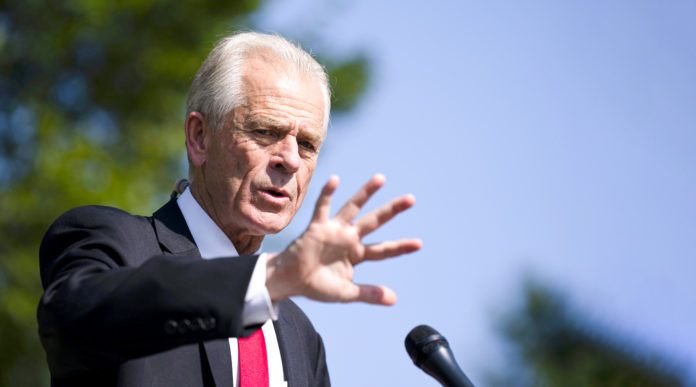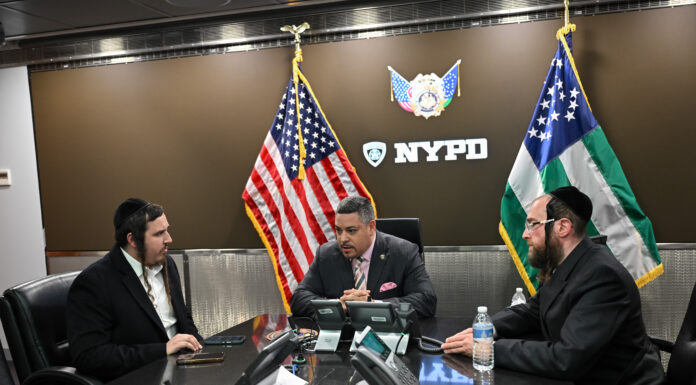Last week, Peter Navarro, who served as President Donald Trump’s trade adviser and was one of the key architects of the Trump administration’s virus strategy, told the House panel probing the government’s coronavirus response that he will not comply with its subpoena. According to media reports, Navarro emerged as a focus of the probe because of his role advising Trump, which included warning the president in February 2020 that the administration was unprepared to respond to the virus. The panel is also interested in Navarro’s subsequent oversight of some of the government’s investments in supplies and equipment to fight the pandemic.
Citing a “direct order” from the former president to claim executive privilege, he rejected the panel’s requests to turn over documents and share other information by the December 8 deadline. According to a letter released on Saturday by the panel, Navarro wrote to the committee on December 7, “[T]his matter is out of my hands and something that the subcommittee should discuss with President Trump’s counsel.”
After Democrats released documents and interview transcripts that they say substantiate claims that Trump officials interfered in health experts’ work and mishandled the response, Trump and his allies responded by attacking the probe as being politically motivated, and directed key witnesses like Navarro not to respond. In a statement issued by Trump on November 20, he said that Navarro shouldn’t comply with a “witch hunt” that was being led by “communist Democrats”: “I’m telling Peter Navarro to protect executive privilege and not let these unhinged Democrats discredit our great accomplishments.”
The showdown with Navarro—which marks the first time a witness has rebuffed a subpoena issued by the Select Subcommittee on the Coronavirus Crisis—has the potential to put him in “contempt of Congress,” which can lead to financial fines and the possibility of jail time.
“Your blanket refusal to comply with the subpoena in its entirety is improper,” Rep. James E. Clyburn (D-SC), who is leading the probe, wrote to Navarro. “Please be advised that if you do not appear for the deposition as scheduled and produce all responsive documents in your possession by December 15, 2021, the Select Subcommittee will interpret your actions as willful noncompliance with the subpoena.”
Democrats said that Navarro was wrong to claim executive privilege, especially since he had already shared information about the White House response in media interviews, public appearances and in his recent memoir. In response, Navarro told reporters that he would send the panel a copy of his newly published memoir, which he said detailed his role in fighting the pandemic. “I will be delivering a case of my new book In Trump Time to the Committee in thanks for their invitation.”
Last Friday, Navarro gave Ami Magazine a lengthy interview in which he candidly shared pertinent information about the White House response to the coronavirus, and also offered a behind-the-scenes look at some of the infighting that took place among the advisers to the president, particularly between him and Dr. Anthony Fauci.
Ami, of course, takes no position in Navarro’s dispute with Dr. Anthony Fauci, and we have previously conducted interviews with Dr. Fauci about the importance of being vaccinated. Therefore, nothing in this article should be construed as medical advice. For health and medical questions relating to the pandemic, one should follow the law and consult with their physician.
I’m fascinated by your relationship with the former president, who seems to have come to the same conclusions as you on many things. He thinks very intuitively, without engaging in theoretical analysis. It’s amazing that a professor like you, who likes looking at the numbers, was able to have a meeting of the minds with him.
It is very interesting. I came at it from the free-trade models and economists that explain how things are supposed to work technically. It was pretty easy, over time, to see why it was failing, because it just didn’t meet all the assumptions that economists love to make. The boss got to that in a nanosecond. He just said, “Yeh, they’re sticking it to us. It’s not fair.”
When did you first meet Trump?
In 2011, the boss was asked by a smart-aleck reporter which books he had read about China. They were trying to catch him in a Sarah Palin moment, expecting him to say that he likes them all. He proceeded to name ten books by title and author in order of his preference. My 2006 book, The Coming China Wars, was on that list. I sent a note of thanks to Trump Tower, and we began corresponding through his executive assistant, Rhona Graff, and he would write things in the margins of the letters. After he declared that he was running for president, I let him know that I would be happy to assist him in any way I could. One thing led to another, and I started helping out with some of his speeches and research. I took what was supposed to be a two-day trip to New York to meet with him, and I never went back home. I was his top economic and trade adviser in the war room at Trump Tower. I did most of the media with Wilber Ross, and we wrote a bunch of reports. I was planning to go home after the campaign, but that didn’t happen. I am one of only three officials who was with him from the campaign through the end of his term.





















